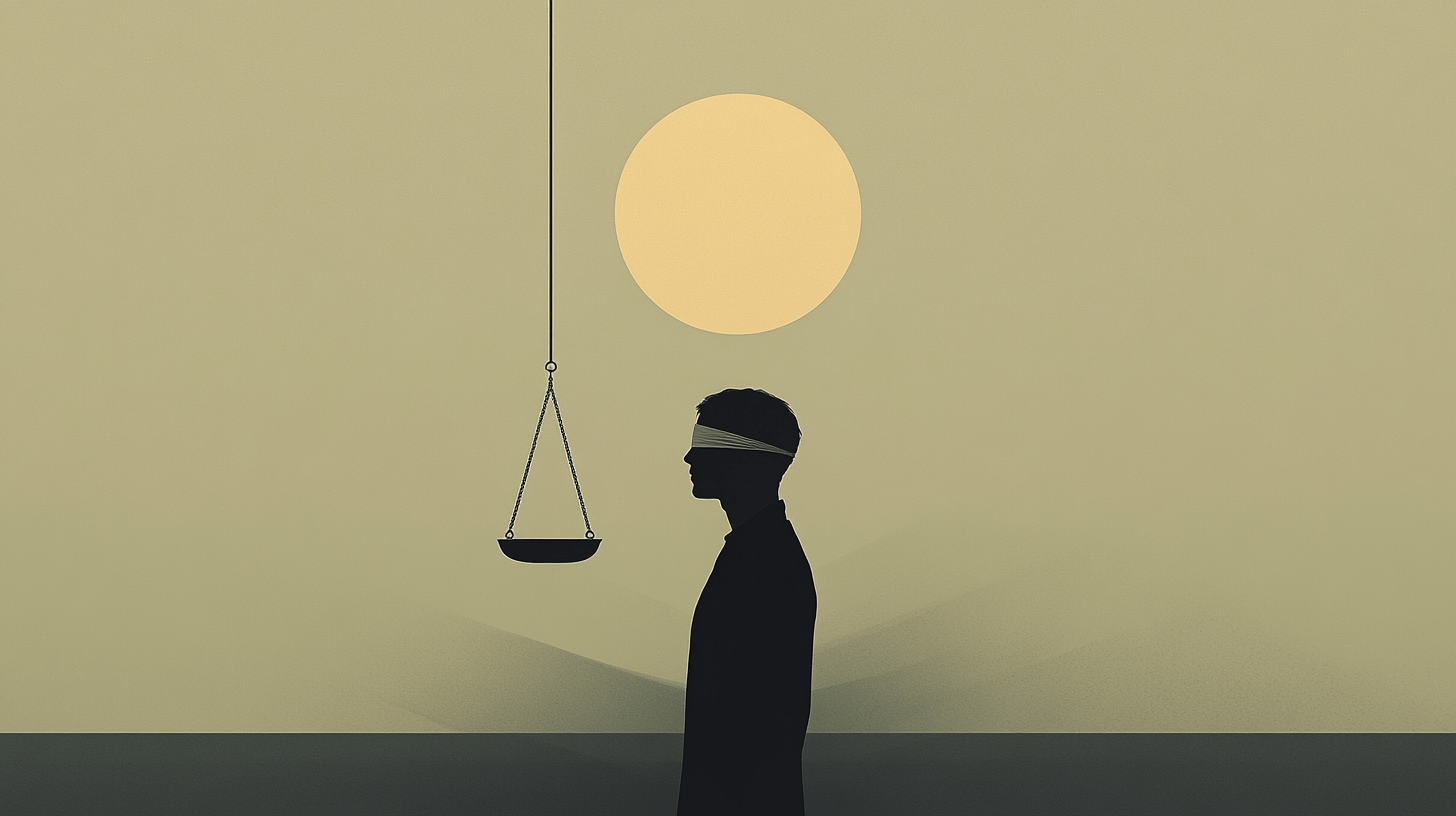Close
Share Your Story with Trial Lawyer’s Journal
Trial Lawyer’s Journal is built on the voices of trial lawyers like you. Share your journey, insights, and experiences through articles, interviews, and our podcast, Celebrating Justice.
Stay Updated
Sign up for our newsletter to get the latest from TLJ.
TLJ Team
Meet TLJ
Contact
Contributions
What is a Demurrer Judgment?
By TLJ Team
What is a Demurrer Judgment? A Demurrer Judgment is a court ruling issued after a defendant files a demurrer, arguing that the plaintiff’s complaint is legally insufficient—even if all the facts alleged are assumed to be true. If the court... Read More
What is the TPPRA?
By TLJ Team
What is the TPPRA? The TPPRA, or Third Party Payor Recovery Act, is a legal statute—most notably used in states like Texas—that gives third-party payors (such as health insurance companies, government programs, or employee benefit plans) the right to recover... Read More
What are Jury Instructions?
By TLJ Team
What are Jury Instructions? Jury instructions are the formal legal directions given by a judge to the jury before deliberation in a trial. These instructions explain the laws that apply to the case, define key legal terms (like negligence or... Read More
What is PEC in Mass Torts?
By TLJ Team
What is PEC in Mass Torts? PEC stands for Plaintiffs’ Executive Committee, a group of attorneys appointed by the court to lead and manage the litigation on behalf of all plaintiffs in a mass tort or multidistrict litigation (MDL). The... Read More
What is a Writ of Mandate?
By TLJ Team
What is a Writ of Mandate? A Writ of Mandate—also known as a writ of mandamus—is a court order directing a government agency, public official, or lower court to perform a specific legal duty. In civil cases, including personal injury... Read More
What is an ESI Discovery Order?
By TLJ Team
What is an ESI Discovery Order? An ESI Discovery Order is a court-issued directive that governs how parties in a lawsuit must handle Electronically Stored Information (ESI) during the discovery phase. ESI includes emails, text messages, digital documents, databases, social... Read More
What is JCCP?
By TLJ Team
What is JCCP? JCCP stands for Judicial Council Coordinated Proceedings, a legal process used in California state courts to coordinate multiple civil cases that involve common issues of fact or law. When many lawsuits are filed across different counties in... Read More
What is Interrogatories?
By TLJ Team
What is Interrogatories? Interrogatories are a formal set of written questions sent by one party to another during the discovery phase of a personal injury lawsuit. These questions must be answered in writing and under oath, and they are designed... Read More
What is Duty to Mitigate?
By TLJ Team
What is Duty to Mitigate? Evidentiary standards refer to the legal rules that determine how much and what kind of evidence is needed to prove a fact in court. In personal injury cases, these standards guide what must be shown... Read More
What is a Demand Package?
By TLJ Team
What is a Demand Package? A Demand Package is a formal collection of documents, evidence, and a demand letter sent by a personal injury attorney to an insurance company or opposing party. Its purpose is to present the plaintiff’s case,... Read More
What is the Doctrine of Res Ipsa Loquitur?
By TLJ Team
What is the Doctrine of Res Ipsa Loquitur? The Doctrine of Res Ipsa Loquitur is a legal principle used in personal injury cases that allows a plaintiff to infer negligence from the mere occurrence of an accident—without direct evidence. The... Read More
What is Joint Tortfeasors?
By TLJ Team
What is Joint Tortfeasors? Joint tortfeasors are two or more parties who are jointly responsible for causing harm to a plaintiff through their separate or combined acts of negligence or wrongdoing. In a personal injury case, this means multiple defendants... Read More
What is Contested Liability?
By TLJ Team
What is Contested Liability? Contested liability occurs when the defendant in a personal injury case denies responsibility for the accident or injury. Instead of admitting fault and negotiating damages, the defendant argues that they were not negligent, not the cause... Read More
What is a Contingency Fee Agreement?
By TLJ Team
What is a Contingency Fee Agreement? A Contingency Fee Agreement is a payment arrangement between a client and a personal injury attorney in which the attorney’s fee is contingent on the outcome of the case. If the client wins or... Read More
What is a Declaratory Judgment Action?
By TLJ Team
What is a Declaratory Judgment Action? A Declaratory Judgment Action is a legal request for a court to formally determine the rights, duties, or legal status of the parties involved—without awarding damages or ordering specific action. It’s often used when... Read More
What is Causation in Personal Injury Cases?
By TLJ Team
What is Causation in Personal Injury Cases? Causation in personal injury law refers to the link between the defendant’s actions and the plaintiff’s injuries. To win a personal injury claim, the plaintiff must prove that the defendant’s negligent behavior directly... Read More
What is Calculating Lost Wages?
By TLJ Team
What is Calculating Lost Wages? Calculating lost wages is the process of determining how much income a person has lost due to an injury caused by someone else’s negligence. In a personal injury claim, this amount is part of the... Read More
What is a Short Form Complaint?
By TLJ Team
What is a Short Form Complaint? A Short Form Complaint is a streamlined legal filing used in mass tort or multidistrict litigation (MDL) cases. Instead of requiring each plaintiff to draft a full-length complaint from scratch, courts or coordinating counsel... Read More
What is an MDL?
By TLJ Team
What is an MDL? An MDL, or Multidistrict Litigation, is a special federal legal process that consolidates multiple civil lawsuits involving similar facts into one court for pretrial proceedings. This streamlines litigation when many individuals file lawsuits against the same... Read More
What is Daubert Vulnerability?
By TLJ Team
What is Daubert Vulnerability? Daubert vulnerability refers to the risk that a party’s expert witness testimony may be excluded from trial under the Daubert standard—a legal test used by courts to assess the reliability and admissibility of scientific or technical... Read More
What is Burden Shifting?
By TLJ Team
What is Burden Shifting? Burden shifting is a legal concept that changes who is responsible for proving or disproving a key fact in a case. In personal injury law, the burden of proof usually starts with the plaintiff, but under... Read More
What is Bad Faith Insurance?
By TLJ Team
What is Bad Faith Insurance? Bad faith insurance refers to unethical or dishonest practices by insurance companies when handling a claim. If an insurer unreasonably delays, denies, or underpays a valid claim, it may be acting in bad faith—potentially exposing... Read More
What is Attorney-Client Privilege?
By TLJ Team
What is Attorney-Client Privilege? Attorney-client privilege is a legal principle that protects confidential communications between a lawyer and their client. It ensures that anything discussed privately for the purpose of legal advice cannot be disclosed to others without the client’s... Read More
What is an Attorney Fee Dispute?
By TLJ Team
What is an Attorney Fee Dispute? An attorney fee dispute arises when a client disagrees with the amount their lawyer is charging or how fees are being calculated. These disagreements can happen before, during, or after legal representation and are... Read More
What is an Affidavit of Merit?
By TLJ Team
What is an Affidavit of Merit? An Affidavit of Merit is a sworn legal document often required in medical malpractice and certain professional negligence cases. It is typically signed by a qualified expert who attests that the plaintiff’s claim has... Read More
What Is a Contingency Fee?
By TLJ Team
What Is a Contingency Fee? A contingency fee is a payment arrangement between a lawyer and client where the lawyer’s fee depends on the outcome of the case – the attorney only gets paid if they win or settle the... Read More
What Types of Damages Can a Plaintiff Recover in a Personal Injury Case?
By TLJ Team
What Types of Damages Can a Plaintiff Recover in a Personal Injury Case? “Damages” in a personal injury case refer to the money awarded to an injured plaintiff to compensate for losses suffered due to someone else’s wrongdoing. Understanding damages... Read More
What Is Comparative Negligence?
By TLJ Team
What Is Comparative Negligence? Comparative negligence is a legal doctrine that addresses situations where both the plaintiff and the defendant share some fault for an accident. In personal injury cases, it determines how damages are allocated when multiple parties are... Read More
What is the Statute of Limitations?
By TLJ Team
What is the Statute of Limitations? A statute of limitations in a personal injury claim is a law that sets a strict deadline for filing a lawsuit after an injury occurs. If a lawsuit isn’t filed within this time frame,... Read More
What is Emotional Distress?
By TLJ Team
What is Emotional Distress? Emotional distress refers to the mental suffering or psychological anguish caused by a traumatic event, negligence, or intentional harm. It is often a significant factor in personal injury claims, allowing victims to seek compensation for their... Read More
What is Duty of Care?
By TLJ Team
What is Duty of Care? Duty of care is a legal obligation requiring individuals, businesses, and organizations to act with reasonable caution to prevent harm to others. This duty is fundamental in personal injury cases, as proving a breach of... Read More
What is Fault Determination?
By TLJ Team
What is Fault Determination? Fault determination is the process of establishing who is responsible for an accident or injury. In personal injury cases, determining fault is crucial because it affects who is legally liable for damages such as medical expenses,... Read More
What is an Expert Witness?
By TLJ Team
What is an Expert Witness? An expert witness is a professional with specialized knowledge, training, or experience who provides testimony in a legal case to help clarify complex issues. In personal injury cases, expert witnesses play a critical role in... Read More
What is a Demand Letter?
By TLJ Team
What is a Demand Letter? A demand letter is a formal written request sent by one party to another, typically demanding payment, action, or resolution of a legal matter. In personal injury cases, a demand letter is often the first... Read More
What are Non-Economic Damages?
By TLJ Team
What are Non-Economic Damages? Non-economic damages refer to compensation awarded in a personal injury claim for losses that do not have a direct financial cost. Unlike economic damages, which cover tangible expenses like medical bills and lost wages, non-economic damages... Read More
What is Negligence?
By TLJ Team
What is Negligence? Negligence is a legal concept that refers to a person’s failure to exercise reasonable care, resulting in harm to another person. It is the foundation of many personal injury claims, including car accidents, medical malpractice, and slip-and-fall... Read More
What is a Motorcycle Accident Claim?
By TLJ Team
What is a Motorcycle Accident Claim? What is a Motorcycle Accident Claim? A motorcycle accident claim is a legal request for compensation made by a motorcyclist (or their family) after an accident caused by another party’s negligence. These claims help... Read More
What is Medical Negligence?
By TLJ Team
What is Medical Negligence? Medical negligence occurs when a healthcare professional fails to provide the standard of care expected in their field, resulting in harm or injury to a patient. This legal concept is a fundamental part of medical malpractice... Read More
What is Medical Malpractice?
By TLJ Team
What is Medical Malpractice? Medical malpractice occurs when a healthcare professional or medical facility provides substandard care that results in harm or injury to a patient. This typically involves negligence, such as misdiagnosis, surgical errors, medication mistakes, or failure to... Read More
What are Lost Wages?
By TLJ Team
What are Lost Wages? Lost wages refer to the income an individual is unable to earn due to an injury, illness, or other circumstances that prevent them from working. This financial loss can be temporary or permanent and is commonly... Read More
What is Loss of Consortium?
By TLJ Team
What is Loss of Consortium? Loss of consortium is a legal claim that compensates the spouse or close family members of an injured person for the loss of companionship, love, affection, and support due to the injury. This type of... Read More
What is Liability Insurance?
By TLJ Team
What is Liability Insurance? Liability insurance is a type of insurance coverage that protects individuals and organizations from financial loss if they are found legally responsible for causing injury or damage to another person or their property. This protection extends... Read More
What is Intentional Tort?
By TLJ Team
What is Intentional Tort? An intentional tort is a deliberate act that causes harm to another person or their property. Unlike negligence, which involves unintentional harm due to carelessness, an intentional tort occurs when someone purposefully engages in wrongful conduct.... Read More
What Are Compensatory & Punitive Damages?
By TLJ Team
What Are Compensatory & Punitive Damages? Damages refer to the monetary compensation awarded to a plaintiff in a personal injury case. They are categorized into compensatory damages, which aim to reimburse losses, and punitive damages, which serve to punish the... Read More
What Is a Claim Denial?
By TLJ Team
What Is a Claim Denial? A claim denial occurs when an insurance company rejects a policyholder’s request for coverage or compensation after an accident or injury. Denials can happen for various reasons, including lack of evidence, policy exclusions, or missed... Read More
What Is a Catastrophic Injury?
By TLJ Team
What Is a Catastrophic Injury? A catastrophic injury is a severe injury that results in long-term or permanent disability, significantly impacting a person’s ability to work and live independently. These injuries often require extensive medical treatment, rehabilitation, and lifelong care.... Read More
What Is Burden of Proof?
By TLJ Team
What Is Burden of Proof? The burden of proof is the legal obligation to present evidence that supports a claim in a lawsuit. In personal injury cases, the plaintiff must prove that the defendant’s negligence caused their injuries to recover... Read More
What Is Bodily Injury Liability?
By TLJ Team
What Is Bodily Injury Liability? Bodily injury liability is a type of auto insurance coverage that pays for medical expenses, lost wages, and legal fees if the policyholder is found responsible for causing injuries to others in an accident. It... Read More
What Are Back and Neck Injuries?
By TLJ Team
What Are Back and Neck Injuries? Back and neck injuries refer to damage affecting the spine, muscles, ligaments, or nerves in these regions, often resulting from accidents, falls, or physical trauma. These injuries can cause chronic pain, mobility issues, and... Read More
What Is an At-Fault Driver?
By TLJ Team
What Is an At-Fault Driver? An at-fault driver is a motorist who is legally responsible for causing an accident due to negligence, reckless behavior, or violation of traffic laws. Being deemed at fault can impact insurance claims, liability, and legal... Read More
What Is Arbitration?
By TLJ Team
What Is Arbitration? Arbitration is a method of dispute resolution where a neutral third party, known as an arbitrator, reviews evidence and makes a binding or non-binding decision. It is commonly used in personal injury claims, insurance disputes, and contract... Read More
What Is an Insurance Adjuster?
By TLJ Team
What Is an Insurance Adjuster? An insurance adjuster is a professional responsible for evaluating insurance claims to determine the extent of an insurer’s liability. Adjusters investigate accidents, assess damages, and negotiate settlements on behalf of insurance companies or policyholders. What... Read More
What Is an Accident Report?
By TLJ Team
What Is an Accident Report? An accident report is an official document detailing the facts and circumstances of an incident involving injuries, property damage, or hazardous conditions. These reports are typically filed by law enforcement, employers, or property owners and... Read More
What is the FTCA?
By TLJ Team
What is the FTCA? The Federal Tort Claims Act (FTCA) is a federal law that allows private citizens to sue the United States government for personal injury, property damage, or wrongful death caused by the negligence of federal employees. Before... Read More

Our City: The Teamwork, Trust, and Technology That Power Liakas Law
By TLJ Team
ON THE 50TH floor at 40 Wall Street in New York City, Nicholas Liakas stares out the window of his corner office as a slow-moving, gray layer of fog wraps around the downtown skyscrapers looming across a city block.

What is Negligence in a Personal Injury Case?
By TLJ Team
What is Negligence in a Personal Injury Case? Negligence is a legal concept that forms the foundation of most personal injury claims. It occurs when someone fails to exercise reasonable care, resulting in harm to another person. In legal terms,... Read More

What is Assumption of Risk?
By TLJ Team
What is Assumption of Risk? Assumption of risk is a legal doctrine that may limit or prevent a plaintiff from recovering damages in a personal injury lawsuit if they knowingly and voluntarily engaged in a risky activity. This principle is... Read More

What is Strict Liability?
By TLJ Team
Strict liability is a legal doctrine that holds an individual or entity responsible for damages or injuries caused by their actions or products, regardless of intent or negligence. This standard is commonly applied in cases involving defective products, inherently dangerous... Read More
Podcasts
Explore Volume 1
The inaugural edition of the Trial Lawyer's Journal set a new standard for law journal publications. With limited ads and one-of-a-kind content, it was created to celebrate wins both in and outside the courtroom.